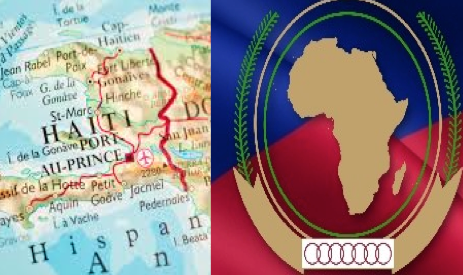After a week of fervent discussion about Haiti’s anticipated entrance into the African Union, reports have now officially confirmed that Haiti will not be joining the AU.
Despite Haiti’s 2012 petition to be admitted as an associate member, it will retain its position as an “observer-state.”
The AU has released a prepared statement that elaborated on its position regarding membership for nations outside of continental Africa on May 17th:
“Given the importance that the AU accords to the African Diaspora, it has developed strong cooperation with sister States in the Caribbean region and citizens of African descent around the world … “ However, “According to Article 29.1 of the AU’s Constitutive Act, only African States can join the African Union.”
For many, Haiti’s rumored decision to join the African Union would have seemed like a natural move to make. While Haiti’s culture is distinct among its neighbors in the Caribbean, it has unique cultural ties to several Western African nations.
A few things to keep in mind:
- Culturally, Haiti still holds onto the idea of Ginen (Guinea) as the homeland … depi Ginen… (Since Guinea…)
- Many African nations see Haiti, the first Black Republic to overthrow its colonial oppressors, as the torch bearer for their own independence and freedom.
- With their West African ancestry there is the idea that allowing Haiti to join the AU would have been a symbolic welcoming “back.”
What would Haiti stand to gain from joining the AU?
With their petition for associate member status, there are likely a few advantages that Haitian political leaders had in mind:
- Haiti surely hoped to benefit from battles that other member states have already fought and won (Debt cancellation is one major example.)
- Haiti’s entrance into the trade agreements between member nations would theoretically bring an economic boost to the country.
- Even as an “observer-state”, Haiti has already been introduced to the inter-ministerial conference on China-AU investment, an interest they would have likely pursued moving forward.
But what exactly is the African Union?
Apart from the news of President Barack Obama’s official visit (He was the first sitting president to do so) to AU headquarters in Addis Ababa, Ethiopia in 2015, many Americans operate with a very limited working knowledge surrounding the AU’s mission, work, and political power in Africa.
The African Union:
Founded on September 9, 1999, and officially launched in 2002, the AU’s primary purpose was to create camaraderie and increased socio-economic integration between member nations in order to foster greater participation in the global economy while also addressing pressing social, economic and political problems that the different member countries face. As a means for achieving these goals, the AU also works to promote peace, security, and national sovereignty for the countries in the Union.
Is it successful?
Like any governmental body, the AU has its critics. Most recently, the AU came under fire when South Africa allowed Omar al-Bashir to freely enter and leave the country for the AU Summit despite the International Criminal Court’s order for his arrest.
This kind of leniency towards powerful figures has led to some distrust of the governmental body, despite their positive and progressive agenda.
The challenges…
The AU is funded by its partners and member nations with a focus on “African solutions for African problems.” The overarching theme is self-sustainability and freedom from exterior interests. The African Union is meant to serve continental Africa’s needs using the continent’s own resources. Part of this initiative involves more intra-continental trade between member states, but many governments working within the AU have also begun to foster strong trade relations with major global economic powers such as China. While the African continent is rich with natural resources, agreement over how to distribute cost is a documented challenge that arises at nearly every summit held.
What’s good about the AU?
The AU’s focus on the socio-economic condition of its citizens, women’s rights and empowerment, environmental initiatives, education (and many more) brings these topics to the center stage where they can be addressed, and countries can begin working to see progress in these areas. Furthermore, the emphasis on continental unity and intra-cooperation (vs. colonial dependency) is equipping member nations with the independence that they need to make the advances that they desire.
Will Haiti be able to join the AU in the future?
As it currently stands, it seems that Haiti will remain an “observer-state” for the foreseeable future. However, with a growing focus on what the AU calls a “6th region” (Comprised of countries whose citizens are members of the African Diaspora) there is likely to be more opportunity for Haiti – AU collaboration and involvement moving forward.
So, whether or not you agree with Haiti’s interest in joining the AU, or the AU’s rejection of Haiti’s membership appeal, for the time being Haiti remains uniquely positioned in the world – a geographically Caribbean country with deep roots in West African culture and tradition.
To read more:
Haiti – FLASH : Haiti will not be a member of the African Union
http://www.haitilibre.com/en/news-17475-haiti-flash-haiti-will-not-be-a-member-of-the-african-union.html
The African Union’s Haiti Press Release
http://au.int/en/pressreleases/30342/haiti-will-not-be-admitted-african-union-member-state-next-summit-kigali-rwanda
Despite Reports, Haiti not joining the African Union
http://www.pbs.org/newshour/rundown/despite-reports-haiti-not-joining-the-african-union/
Written by Erin Nguyen on May 22, 2016

